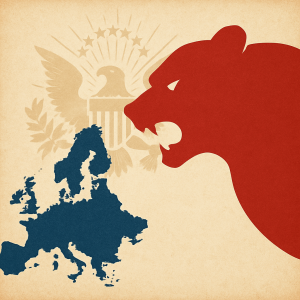If you replace “France” with “Europe”, Michel Rocard had already said it all. “France cannot take in all the misery in the world”, declared François Mitterrand’s Prime Minister some thirty years ago, “but it must take faithfully its share of it”, he added in the same breath.
He was referring to faithfulness to the European values of compassion and protection of the persecuted, as the treaties we have signed, Christian charity and plain humanism forbid us to throw into the sea those fleeing war, misery or persecution. These values are sacred, but they can in no way mean that the European Union must open its doors to all those who live worse, or even much worse, than we do.
Cruel as it may be, we have to distinguish between political refugees and economic refugees, between those fleeing misery and those fleeing death. We need to do this because, far from being unlimited, our reception capacity is already totally inadequate, because the instability of our eastern and southern neighbours is constantly increasing the number of migrants, and because the scale of this influx is fuelling a fear of the other, a fear that is the bread and butter of the parties of hatred.
If we do not want to see the European Union swing to the far right and our civilisation regress, we need to tackle the migration issue head-on.
The first thing we have to do is admit that we have a problem to solve. Many elected representatives, intellectuals and community activists are still reluctant to do so for fear of stigmatising migrants whose only crime is to flee death or to seek a better life. We can understand their concern, but by refusing the clarity that Michel Rocard called for, we are only exacerbating an absolutely mortifying political unease.
Another former French Prime Minister, Edouard Philippe, has just denounced, in the columns of L’Express, an “immigration of fait accompli” and noted that we are “crippled by words we do not say out loud”. He was right, but while it is indeed absurd to deny that the number of foreigners in the EU is rising steadily, that a large proportion of them are Muslims and that many Europeans feel their culture is threatened by them, there are other truths to be remembered.
Integration has had infinitely more successes than failures. Muslims in Europe are moving away from religious practice almost as much as Christians. It is not because he is Syrian that the Annecy killer stabbed children, and our economies, whether we like it or not, need immigrant labour, in the construction industry as well as in agriculture and personal services.
So yes, perhaps these sectors could do without foreign workers, if they offer higher wages, but apart from the fact that this is not certain, are we prepared to pay even more for our square metres, our restaurants, our fruit, our holidays and our retirement homes?
This is a real debate, and if we keep evading it, we cannot talk about immigration, and the second truth to remember is that walls will not stop this great flight to Europe, which can only be halted by two things.
The first would be for the European Union to set a condition on its aid cooperation agreements for the countries of departure: namely, the readmission of those of their citizens whose right to asylum has not been recognised in the EU. This is a test of strength, but we will not move from immigration based on “fait accompli” to selective immigration without taking a firmer line with the countries concerned.
The second thing we need to do to convince would-be emigrants not to take to the sea in inflatable rafts is to develop our labour industries on the other side of the Mediterranean rather than in Asia. While combating global warming by reducing transport times, the European Union would also contribute to the economic and political stabilisation of Africa, whose growing wealth would soon provide a formidable outlet for its exports.
The solutions exist, and they are humane and promising. All we need to do is rise to the challenge.



